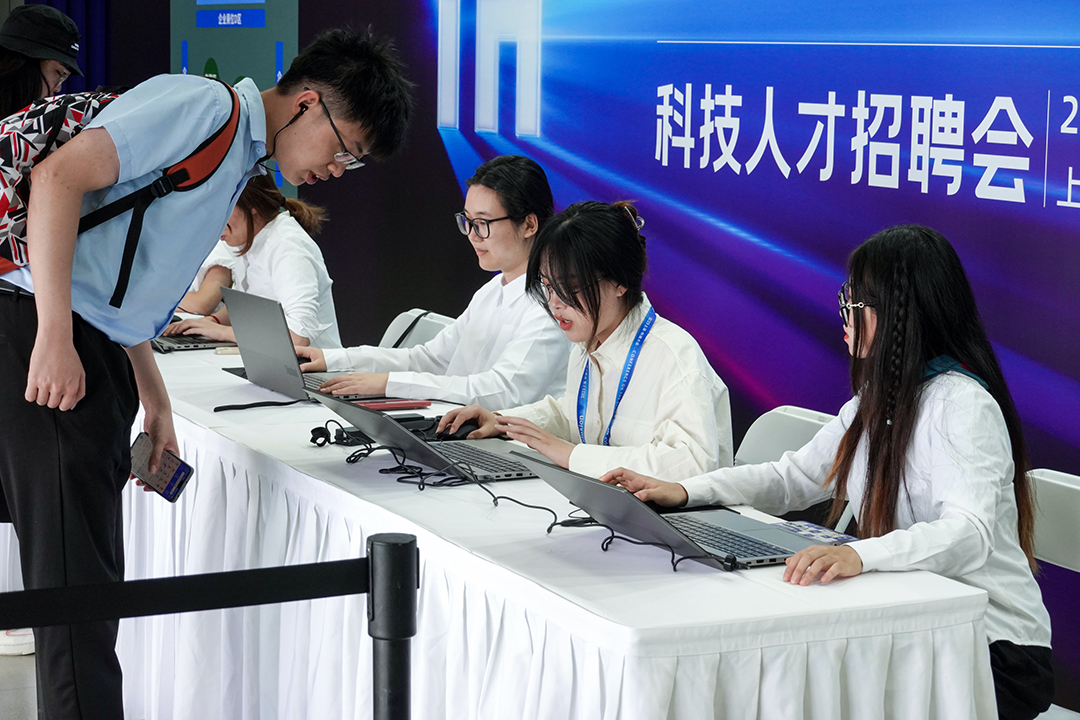 Third of Chinese Workers Seek New Jobs, Michael Page Survey Finds
Third of Chinese Workers Seek New Jobs, Michael Page Survey Finds(Yicai) June 4 -- One-third of employees in China are open to new opportunities amid evolving workplace dynamics, while skill gaps have emerged as a new recruitment challenge, according to the findings of a talent trends survey carried out by employment agency Michael Page.
The number of Chinese talents looking for a new job jumped 5 percent as of late last year from a year earlier, Michael Page said in its latest Talent Trends report based on a survey of 2,421 local professionals. Workers' skill sets have surpassed cultural fit as employers' main hiring challenge, while salary expectations remain a significant concern.
China's urban employment increased by 12.56 million last year, exceeding the government's 12 million target, with only 20 percent of employers reporting hiring difficulties, which was below the global and regional average. However, about 14 percent faced employee retention challenges.
"Whilst what people want from work has stabilized over the past few years, many professionals have unanswered questions about what's coming next," said Rupert Forster, senior managing director of Michael Page China. "For instance, whether companies can meet job seekers' salary expectations, implement effective talent retention strategies, and align with professionals' core demands.
"However, this is where the opportunity for employers to compete on clarity comes to the fore, getting ahead of the competition by being clear on what they can offer, attracting talent aligned with their values in the process," Forster noted.
Compensations remain the primary driver for talents changing jobs, followed by limited career advancement opportunities. A notable disconnect emerged in training priorities, with employees ranking it third in importance while employers placed it eighth, highlighting a perception gap in talent development.
The report also highlighted a high adoption of generative artificial intelligence tools at workplaces in China, with 57 percent of professionals regularly using DeepSeek-R1, Kimi AI, and others, exceeding the global average of 45 percent and the Asia-Pacific one of 54 percent. However, only 27 percent said their employers provide adequate AI guidance.
In addition, company ethics and values have gained importance, rising to fifth from seventh place in candidates' job selection criteria. In contrast, employers rank the company brand fifth in attractiveness, while candidates do not even list it among their top ten priorities.
The findings were part of Michael Page's broader Asia-Pacific study covering 11 markets, including Hong Kong, Singapore, and Japan. The London-listed company set up its first Chinese mainland office in Shanghai in 2003 and has since expanded to Beijing, Shenzhen, Guangzhou, and Suzhou.
Editor: Martin Kadiev